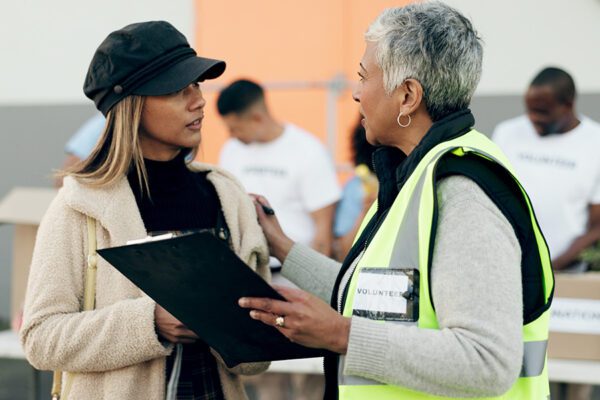You’ve signed off on an expense agreement and agreed to engage in the underwriting process with a Reps and Warranties Insurance (RWI) market. A critical part of the RWI process is the underwriting call. The insurance carrier and their team will get together with the buyer and their advisers, typically within a week of closing, to review due diligence findings.
This call can last anywhere from one to three hours and typically takes place a few days in advance of signing. The carrier will send out an underwriting agenda in advance of the call. This will provide a line of sight into what they are going to cover. Proper preparation in advance of this call can go a long way in obtaining the most favorable policy terms.
It’s a big responsibility – how can you best prepare? Below is a list of do’s and don’ts to help you successfully navigate an RWI underwriting call.
DO: Be Transparent
If there is one key takeaway from this article, it’s that transparency is key when you are on an underwriting call. Suppose there is an area of the business that should have been mentioned in the due diligence report. In that case, the carrier will want to understand the reasoning behind why you think the exposure is immaterial. In a situation where you don’t recall, it is okay to say that you don’t know and will respond after the call in writing.
The RWI underwriting call is typically straight-forward and not meant to catch you in any “gotcha” moments. However, it is critical to answer all questions as thoroughly as possible. The more accommodating and detail-oriented a buyer is, the smoother and quicker the process will be – and you will ultimately end up with broader coverage and best premiums.
DON’T: Slack on Researching the Seller
If an underwriter brings up an area that is not included in due diligence, one of the worst ways you can respond is, “We didn’t look into that.” This makes you look underprepared and untrustworthy. If an area of concern was identified, the underwriting team would like to hear about the issue and what you did to get comfortable with the exposure.
Don’t expect the insurance carrier to know all the answers going into the underwriting call. They only complete a surface-level review of the information and ultimately rely on the buyer to get into the details. The insurance carrier will receive the due diligence reports, access to the data room, copies of the purchase agreement and disclosure schedules prior to the call. Their team will then review the information to begin to understand the extent of due diligence performed on the target, determine if any red flags were identified that give rise to concern and ensure that detailed and complete disclosure schedules have been prepared.
DO: Anticipate Any Deal Related Questions
Be prepared to talk about all areas, including those that are identified as exclusions. You can expect to receive questions on these issues throughout the RWI process, as carriers want to see if they will have a broader impact on the target.
It is also important to note that specialists from the insurance carrier will be jumping on and off the call, so you may be asked the same question multiple times. If a question is redundant, you can either answer again or refer them to the earlier discussion on the topic.
DO: Assign a point-person to follow up with post-call open items.
Nearly all underwriting calls will have an open item list following the call that will require more research or follow up. In these cases, assign a subject matter expert to each open item with a deadline and direct their answers to the internal point-person for coordination back to the appropriate parties.
DON’T: Leave Any Concerns Unaddressed
It is not helpful to say, “We were able to get comfortable because we are receiving a rep from the seller.” A failure to adequately address key issues can lead to further underwriting of the exposure, which can ultimately delay the process and lead to coverage limitations or exclusions. The insurance carrier is insuring the accuracy of the reps in the purchase agreement and wants to hear about the supporting diligence.
DO: Prioritize the Interests of the Carrier
The end goal of the RWI underwriting call is for the carrier to walk away feeling like the sellers and their counsel have been active in the due diligence process and enabled you to get comfortable with any identified areas of concern in advance of closing.
Additional Considerations
- It is not required for the buyer and their advisors to be on video.
- The buyer should keep a running list of the working group present and participating on the call for later reference.
- When the buyer and their advisors are responding to a question on the agenda, they don’t need to read the entirety of the question back. They can simply refer to the numbered question or item being answered.
Next Steps After the RWI Underwriting Call is Finished
When the call is completed, the insurance carrier will send over a draft of the policy form, and the buyer will handle answering any outstanding questions. From there, further exchanges of information and policy negotiations may take place to ensure everything is ready for signing.
Do you need any assistance preparing for your next RWI underwriting call? Reach out to Horton’s M&A team to help develop a checklist and ensure you’ve completed all of your homework.
Material posted on this website is for informational purposes only and does not constitute a legal opinion or medical advice. Contact your legal representative or medical professional for information specific to your legal or medical needs.




